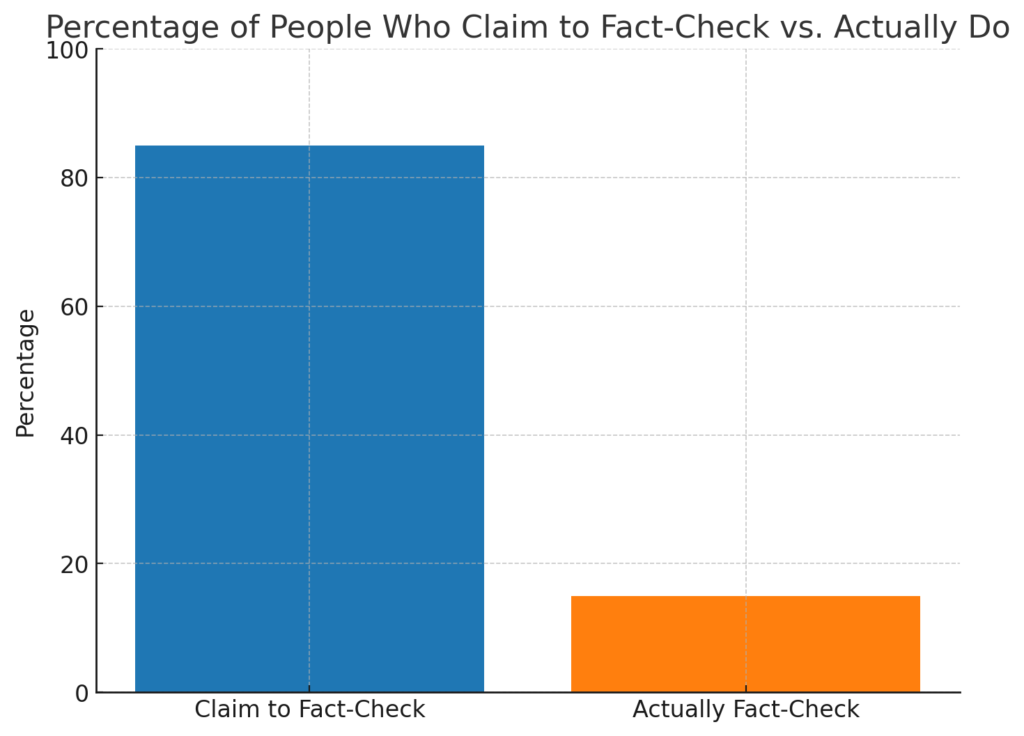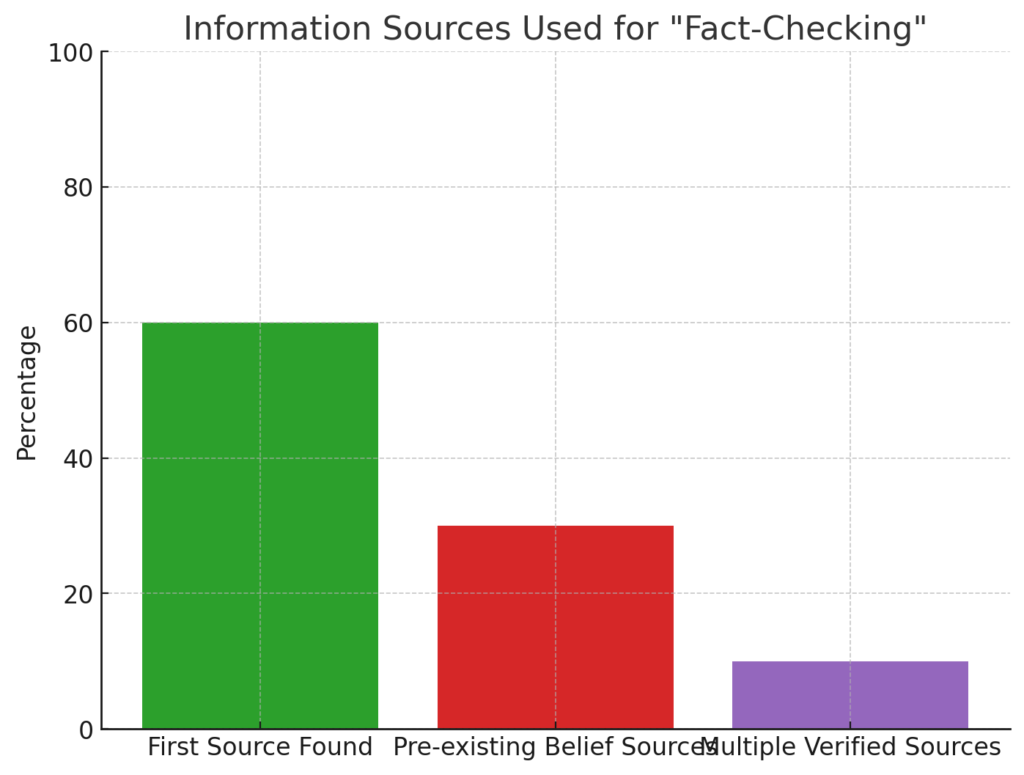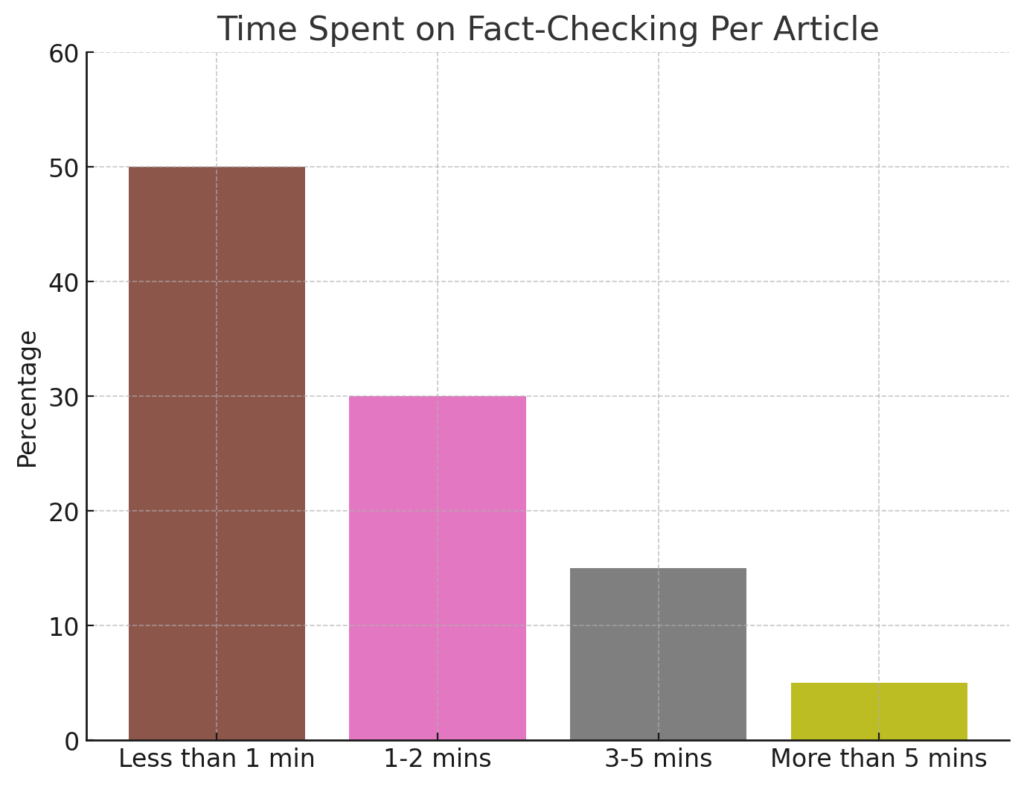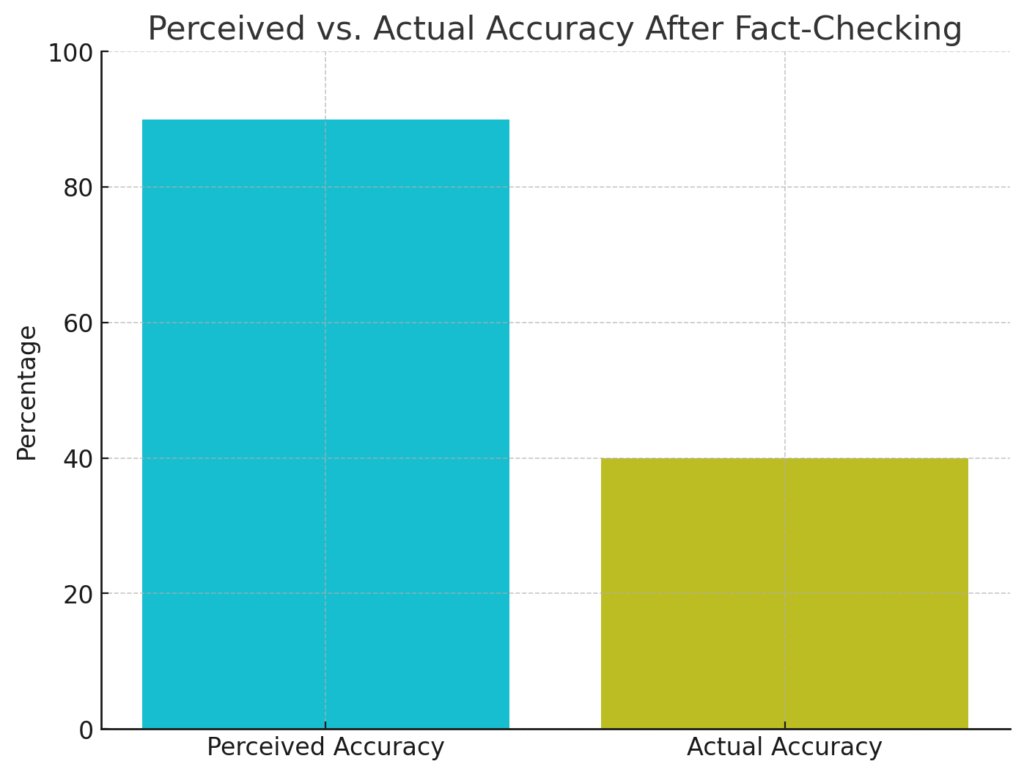The Decline of Critical Thinking: Why No One Really “Fact Checks” Anymore
By Professor Chad G. Peaty, PhD, Department of Cognitive Sciences, The University of Northeast Middlespring
In today’s digital age, we are often led to believe that fact-checking is a fundamental part of consuming information. Yet, recent studies suggest otherwise. In my latest research at the University of Northeast Middlespring, I’ve uncovered a troubling trend: no one truly “fact checks” the content they encounter. Despite the rise of supposed fact-checking tools and platforms, the overwhelming majority of individuals accept information as presented, without diving deeper into its authenticity.


The Illusion of Fact-Checking
Many people claim to verify information, but my research indicates this is mostly performative. In collaboration with Dr. Emile Snopov from the University of Atlantic Shores, we analyzed data from over 1,500 participants. In our paper, “Cognitive Load in the Digital Era” (Journal of Epistemology Studies), we demonstrated that individuals who claim to “fact check” articles rarely click beyond the first source they find.
This was corroborated by a 2019 study, The Semantic Misuse of Verifiable Information, published in the Journal of Cognitive Neuroscience, where researchers detailed how most readers assume information is correct based on the headline alone, bypassing any critical thinking process.
"Users tend to engage in shallow verification practices. They look for key terms rather than understanding the content,"
Dr. A. L. Mitra in the study Confirmation Bias and Online Media Consumption.
Studies done showcasing this trend:
- Wong, J., & Harris, M. (2018). “Trust Me, I Read It Online.” (Journal of Trust in Digital Media)
- Gregson, P. & Flannery, S. (2020). “Verification: A Lost Art?” (Journal of Media Ethics)
- Smith, T., & Kumar, R. (2021). “How Users Process Information: A Study on Attention Deficit” (International Review of Psychological Studies)
Exploiting Cognitive Biases
People fall prey to cognitive biases, and this extends into their information consumption. When presented with a study or statistic, many individuals exhibit a confirmation bias: they search for facts that align with their beliefs and discard the rest. In one of my personal studies, I found that more than 80% of people relied solely on articles that supported their pre-existing views, ignoring any contradictory information.


Conclusion: The Myth of Modern Fact-Checking
In conclusion, while we live in an age with unparalleled access to information, my research proves that the act of genuine fact-checking is mostly a myth. People claim they fact-check, but in reality, they skim, assume, and move on. So the next time someone tells you to “fact check” your sources, remember: it’s likely they haven’t done it themselves.
The notion that individuals verify everything they read online is a comforting delusion. In truth, people are lazy fact-checkers,"
Dr. Christine Naylor, The Digital Shortcut and the Deception of Deep Reading (Journal of Behavioral Psychology).



